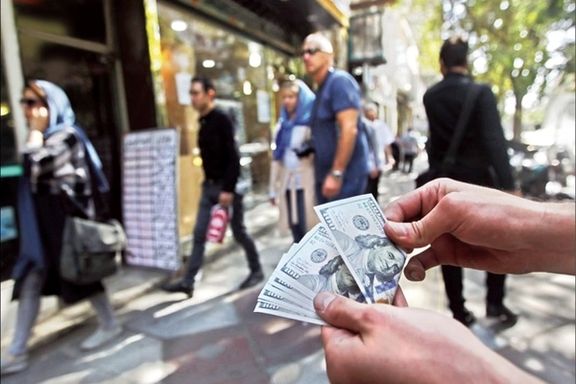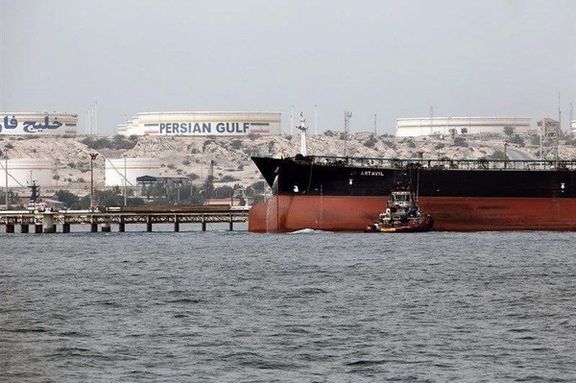IMF Data Show Iran's Currency Reserves Rise As Oil Exports Continue

The IMF in a recent report showed that Iran’s foreign currency reserves increased from a low of $12.4 billion in 2020 to a projected $31.4 billion for 2021.

The IMF in a recent report showed that Iran’s foreign currency reserves increased from a low of $12.4 billion in 2020 to a projected $31.4 billion for 2021.
The October 2021 Regional Economic Outlook: Middle East and Central Asia report of the International Monetary Fund contains a table of countries with their foreign reserves listed since 2000. Iran’s foreign reserves in 2018 was $122.5 billion and in 2020 had dropped to $12.4 billion.
When the United States withdrew from the 2015 nuclear agreement known as the JCPOA in May 2018 and began restricting Iran’s oil exports and international banking relations, the Islamic Republic dipped into its foreign reserves to make up for the loss of oil revenues.
In its more than 40-year history, the Islamic government has remained heavily dependent on oil exports to finance at least half of its known government budget, plus its secret military, intelligence and regional alliances.
The ‘maximum pressure’ campaign launched by the Trump administration gradually reduced Iran’s oil exports and kept them at a historically low level of around an average of 200,000 barrels a day from May 2019 to late 2020. Before the sanctions, Iran exported were more than 2 million barrels a day.
In September 2020, candidate Joe Biden announced that he opposed Trump’s decision to leave the JCPOA and wanted to return to the deal if elected. This meant that he had to lift at least some of the sanctions. Reports came a while later that Iran’s oil shipments had increased to 500,000 bpd or more.
It is difficult to say with certainty that the additional oil sales have boosted Iran’s currency reserves from 12 to 31 billion dollars in one year, but they must have helped.
In April as negotiations to restore the JCPOA started in Vienna, Reuters reported that Iran was selling around 500,000 bpd, much less than before the sanctions but enough to generate at least $9 billion annually. We can never be certain of exactly how much oil Iran is exporting clandestinely and how much money it is making. Perhaps it is more than $9 billion, as some estimated that exports had reached 900,000 bpd in some months. China is the main importer, although officially its customs data show no oil imports from Iran.
Critics say that the Biden administration is not rigorously enforcing US sanctions and has allowed China to buy Iranian oil, disguised as shipments from other countries, pretending not to know the real origin of cargoes it receives.

Gabriel Noronha, former Special Advisor for the Secretary's Iran Action Group at the State Department during Trump told Iran International that “For months, the Biden Administration has seen and ignored Iranian oil sales to China, which has now provided Iran around $10 billion in additional revenue. The most it has done is threaten sanctions against China, but shown no willingness to actually do so. They mistakenly believe that China's cooperation is needed to get back into the JCPOA, when it is really a question for Iran to answer. It is very disappointing that this administration has taken such a naive approach to China's relationship with Iran.”
Iranian experts have argued that China is paying little cash for the oil it buys from Tehran due to US banking sanctions, and instead it sends goods via middlemen, who make huge profits. But the mystery of the IMF estimate remains in place. Without oil revenues, Tehran could not have boosted its reserves.
Fars news agency affiliated with the Revolutionary Guard insisted in October that China is buying oil from Iran,
Noronha blames the Biden Administration for not fully enforcing US sanctions. Iran has left the JCPOA multilateral talks in Vienna since June and has not committed to a date for resuming negotiations. Meanwhile, it is enriching uranium to up to 60 percent purity that has no civilian use.
“Instead of getting a better deal or depriving the regime of funds for its nuclear program and terrorism, the Biden Administration has obtained zero concessions from the regime in its 10 months of appeasement,” Noronha says.
Tweet unavailable